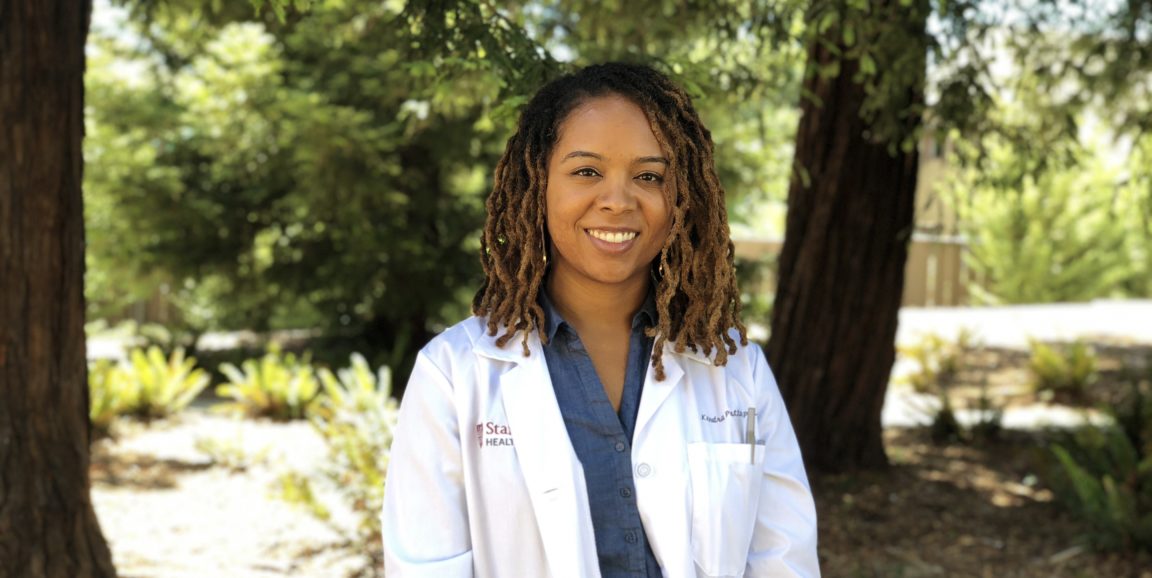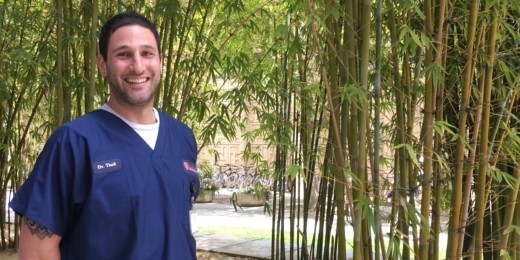Kendra Patton Silverman, MS, PA-C, has enjoyed science and math since she was a child, but it was her experiences as a lifeguard in high school that sparked her interest in medicine. Now, she's a clinical assistant professor in the Master of Science in Physician Assistant Studies program at Stanford, a 30-month program that welcomed its first class last fall.
I caught up with her recently to learn more.
Why did you decide to become a physician assistant?
The main thing I really liked about the PA profession is the versatility of our profession. We are trained as generalists, but can practice in many different specialties.
I have also always been fascinated at how complex disease processes are, and how the human body can heal itself often if given the right nutrition and support.
What is most fulfilling about your work?
I spend much of my clinical day seeing patients in the outpatient primary care setting. Once the patient leaves, it is ultimately up to them to implement changes in their life. Change can be difficult, especially when it involves breaking old habits. It is always rewarding when someone has worked hard to improve their health, based on advice that I have given.
What is your ultimate career goal?
My ultimate career goal is to establish a program or pipeline to help increase diversity in the PA profession, especially in the Bay Area and in my hometown of Detroit. There are many talented and brilliant individuals, particularly people of color, in underserved communities that do not have knowledge about health care professions or the resources to be a competitive applicant.
I hope to accomplish this through programs to educate youth, by creating shadowing and volunteer opportunities, and obtaining funding to create scholarships.
What is one change you've made that has made the biggest difference in your life?
Meditation. When I first heard about it many years ago I didn't know how to do it. But once I learned that it was a no-judgment act, I've been able to really get into it.
I use guided meditation on YouTube to help me dive deep into my practice, and it has made a world of difference in my life. I am in more control of my reactions to the external world, my stress is lower, I can tap into my creative energy, and overall I feel more inner peace.
What is one piece of advice you would give to someone hoping to be where you are now?
I strongly recommend finding a mentor that has experience in the field that interests you. There are many different routes to becoming a PA, which can be overwhelming. A mentor can help to navigate the process based on your specific goals.
What do your colleagues not know about you?
I am African-American, but many of my colleagues do not know that I am also Native American, a member of a tribe based in Michigan. My grandmother helped to instill the importance of embracing our culture by taking us to powwows, teaching us the traditional Chippewa stories, and having us spend time on the reservation.
Could you recommend a good movie or television program?
I recently saw "Coco" and it was one of the best movies I have seen in a long time. The main theme of the film is about honoring your ancestors and never forgetting where you come from.
What are you listening to now and why?
I am a big fan of hip hop and soul music. I am currently listening to a new artist named Jorja Smith from the U.K. She has such a soulful and powerful voice and a really great message for young women.
What are your favorite foods?
French fries. My big sister used to call me Kendra J Fry due to my obsession with French fries.
Do you have a role model?
My grandmother, who died at age 97, was the matriarch of our family. She instilled in us how to believe in ourselves and speak out for what we believe in. She encouraged us to explore and share our creativity with the world.
I know that she would be extremely proud of me if she could see me now.
Stars of Stanford Medicine features standout scholars in the School of Medicine.
Photo by Julie Greicius






